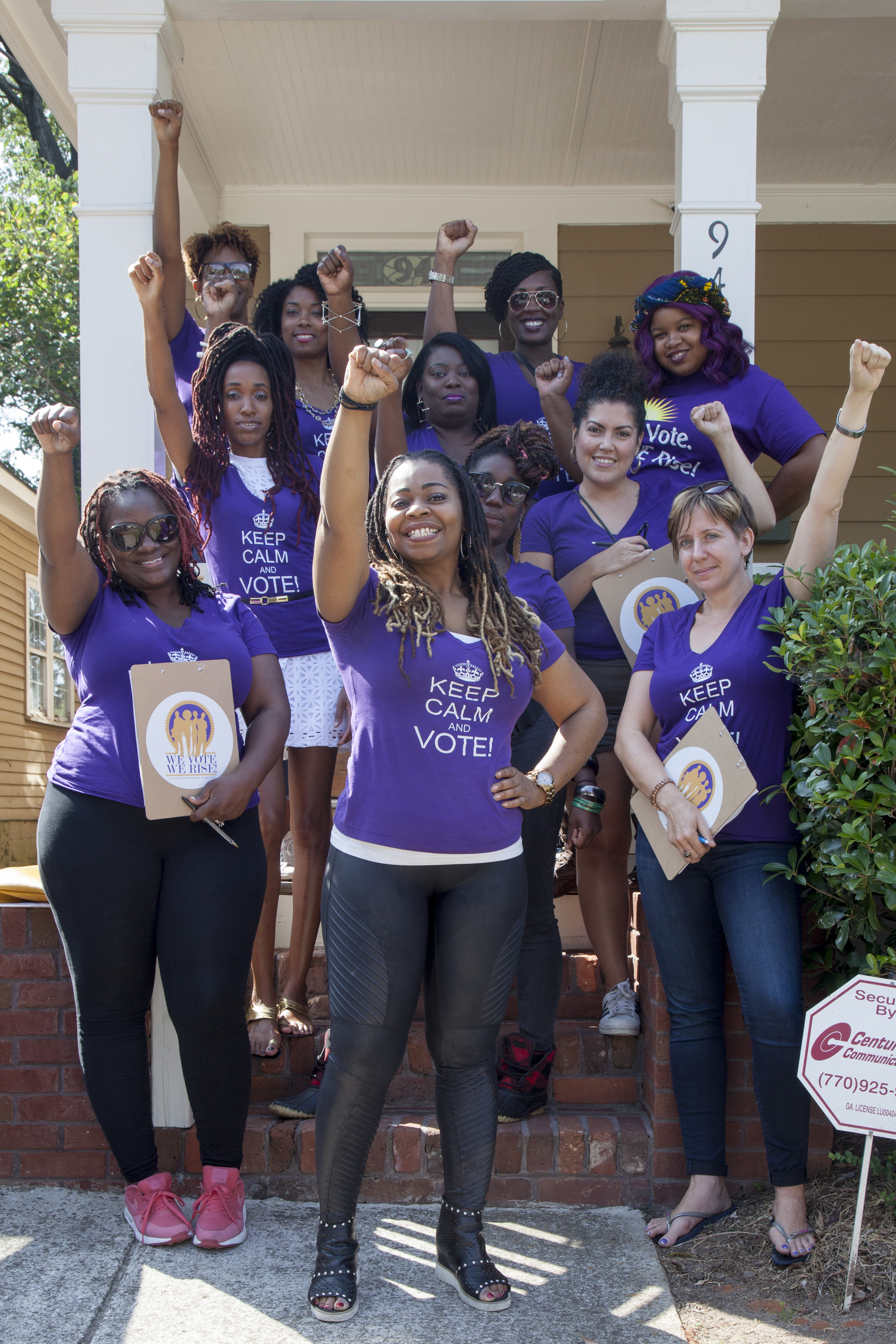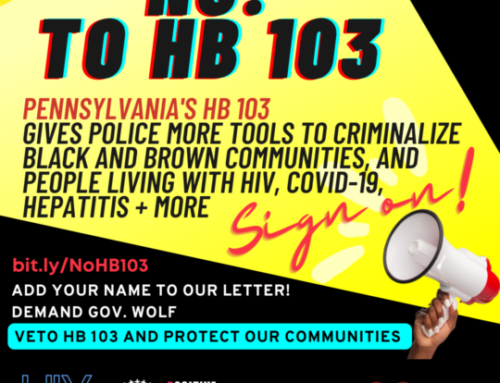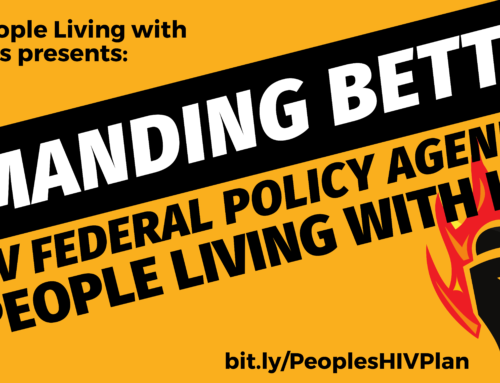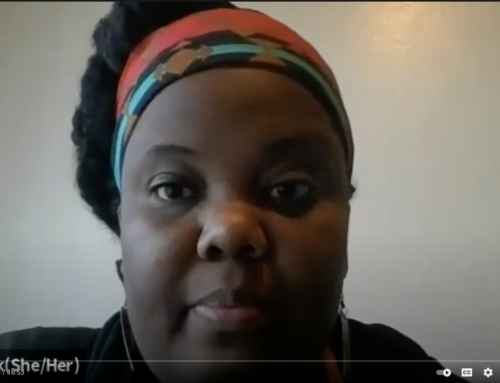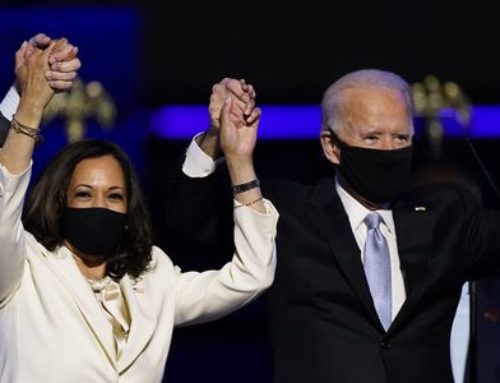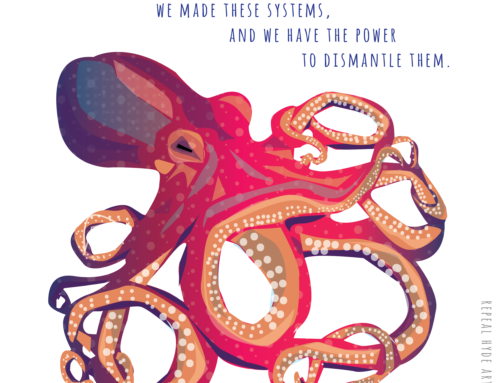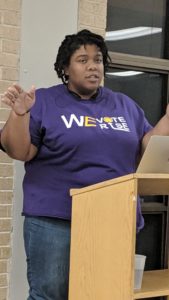 Q. How did you get involved in the work of electoral organizing? What have you learned in the process?
Q. How did you get involved in the work of electoral organizing? What have you learned in the process?A. I joined Women Engaged a little over two years ago as my first formal position in electoral organizing. I am thankful for the leadership of our co-founders, Malika Redmond and Margaret Kargbo, because I have found an avenue to channel my passion for political education and use it as a tool to build power and protect the rights of the communities I hold dear. I have learned a great deal and could fill books, but I will try to be succinct. I have learned the power that in-person conversations have to build power, and how important it is for us to use our stories to hold the government and communities accountable to our needs.
Q. What types of issues do the organization inform the community of when canvassing? What has been the response of doing this work?
A. In Georgia, the legislature has not expanded Medicaid, which means roughly 1 in 8 Georgians do not have healthcare, and that number grows larger across intersecting identities. When we canvass we are not only combating voter suppression by providing vital voter information, we take the time to talk to folks about the issues that matter most to them, and the need for us to increase access to healthcare, especially reproductive healthcare.
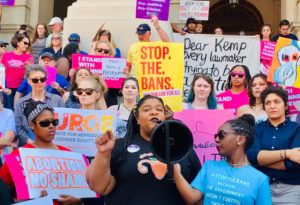 Q. Have you noticed an increase in voter turnout since Women Engaged has been canvassing? In which community are you seeing an influx in participation in the voting process?
Q. Have you noticed an increase in voter turnout since Women Engaged has been canvassing? In which community are you seeing an influx in participation in the voting process? A. Yes, in the areas that we canvass we have seen that voter turnout often doubles the average turnout ratio. We have focused our work over the past 5 years in Southwest Atlanta, East Point, and College Park, Georgia. We can also accredit the increased turnout to our increase voter registration efforts as well, where we have continuously grown our total and deepened our relationships in the communities we work in.
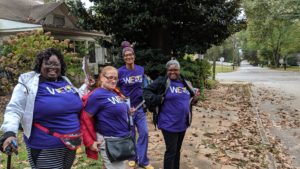 Q. What more do you want to say about Women Engaged?
Q. What more do you want to say about Women Engaged?A. Women Engaged is a social justice nonprofit at the intersections of reproductive justice and civic engagement. In 1994, a group of amazing Black women coined the term “Reproductive Justice” to speak to the intersectional oppression that impacts us. The four principles to reproductive justice are the right to have a child, the right not to, bodily autonomy, and for us to have our families in safe and sustainable environments. We just celebrated five years this past October, and with our eyes toward the future, we are excited to see how we are going to continue to grow power in communities and work with partners to achieve reproductive justice.



